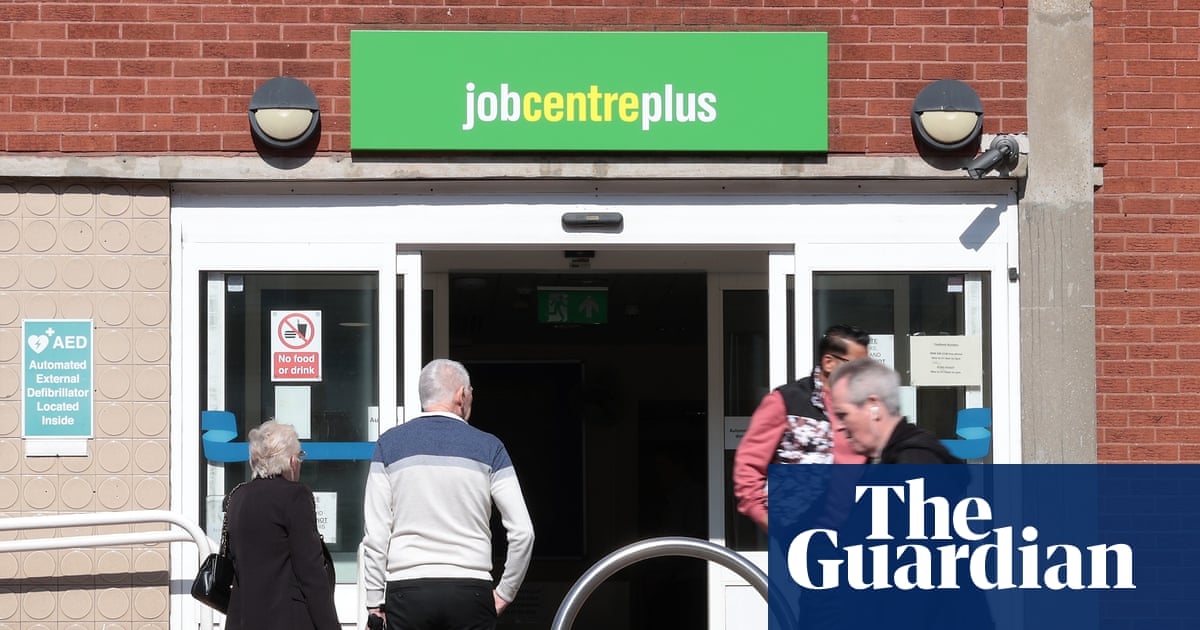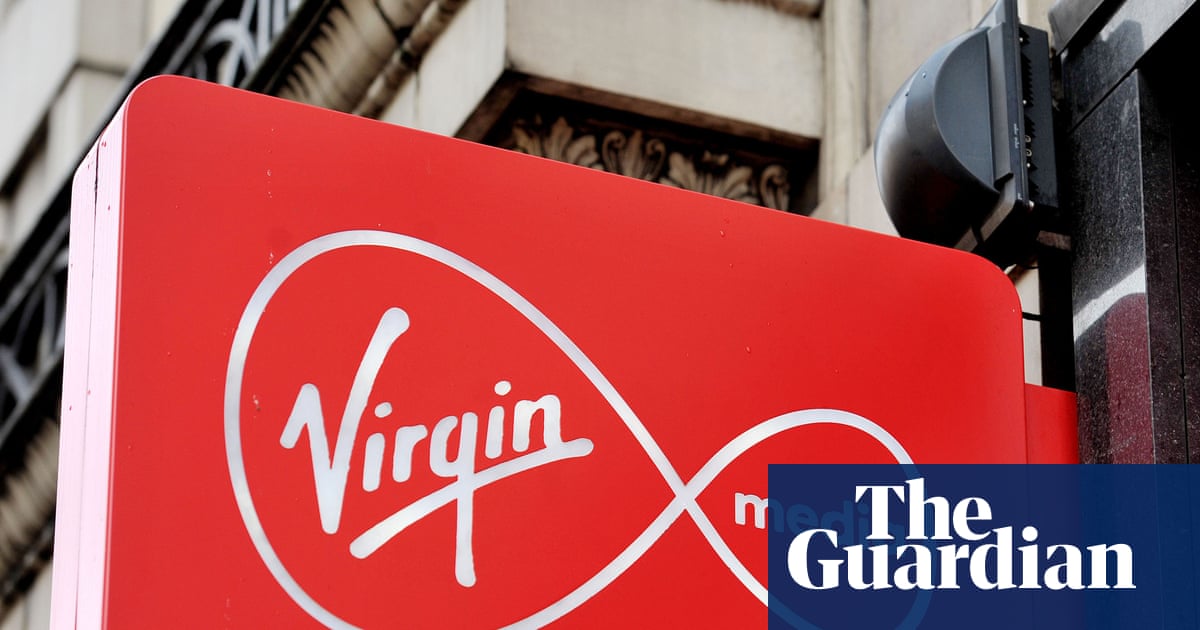Commuter misery: Tube strikes and website issues
Commuter misery deepened this morning as the Transport for London website crashed, on the first day of a week of tube strikes.
People clicking on specific lines to find out more about the impact of a five-day strike by the RMT union were greeted with an “internal service error” message earlier this morning.
This appears to be fixed now, but the journey planner section on the TfL website is still not working.
The series of strikes will mean almost no tube trains running until Friday, with other transport in the capital likely to be affected by crowding and congestion.
The RMT union has batted back pleas to call off the industrial action, involving about 10,000 workers, as it attempts to secure a shorter working week as part of pay negotiations.
London’s other rail services – the Elizabeth line, London Overground and National Rail services – will continue to run, as will buses. Some central rail stations with tube interchanges will be closed.
Shelly Asquith, health & safety policy officer at Trades Union Congress, said on X:
A very good morning to all London Underground workers on strike today
Fatigue from long hours and extremely early or late shift work takes a major toll on the body, increasing likelihood physical and mental health conditions
You deserve better! #tubestrike @TfL @RMTunion
Economist Ben Ramanauskas, a former government adviser, said:
The @RMTunion shouldn't be able to hold Londoners to ransom and stifle the UK's economic growth. As much of TFL as possible needs to be automated ASAP. In the meantime the Tube should be declared an essential service and its workers banned from striking.
— Ben Ramanauskas (@BenRamanauskas) September 8, 2025Key events Show key events only Please turn on JavaScript to use this feature
Shrinkflation bites as boxes of Quality Street and Celebrations lose weight
Tucking into a box of Quality Street or Celebrations is a Christmas tradition.
But as this year’s supply arrives in British supermarkets, it is becoming clear that the Grinch has already struck and made the tubs of the confectionery lighter.
Someone has also taken a bite out of Toblerone, with 20g shaved off its chocolatey peaks, reducing a 360g bar to 340g.

The latest round of shrinkflation means anyone prising the lid off the Quality Street box may be underwhelmed by the number of sweets – as 50g has been lost from the weight, taking it from 600g to 550g.
Meanwhile, at 500g, there’s less to celebrate about tubs of Mars’s Celebrations, which weighed 550g in 2024.

Lisa O’Carroll
The Irish deputy prime minister has had talks with US trade representative Jamieson Greers to try and nail the Donald Trump administration down on its tariffs on pharmaceuticals and whiskey, reports Lisa O’Carroll, the Guardian’s senior correspondent for international trade and post Brexit affairs.
Simon Harris told reporters there was still a “big body of work” to be done to get discounts for generic pharma products, a sector that includes own-brand ibuprofen or paracetamol, medical devices and spirits and wine.
The EU-US framework agreement talks about generic pharma products, but it doesn’t define what is a generic product. [there is a big body of work that needs to be done in relation to that, because there’s going to be up to a 15% tariff in general for pharma in the EU, but it [the agreement] does say that the current regime, zero for zero [tariffs] would be maintained for generics.
He told reporters on the sidelines of the British Irish Conference in Oxford:
We don’t yet have a list of what generics [are included]. Medical Device is the same. What is the list of medical device products? [that would be rated zero].

Harris said he had a productive talk on the phone with Greer and would continue to fight for Ireland’s significant pharma, whiskey and gin sector.
Whiskey exporters in Ireland and wine exporters in continental Europe were battling for the existing zero tariff on whiskey and the marginal (0.5% to 1.8%) tariff on wine to be maintained.
“We in Ireland and in the European Union, feel very strongly about the drink sector, the alcohol industry, being a part of that ... All of the work at an EU level, and all of the work at a national government level in the European Union now is about trying to pad out and fill out the agreement,” Harris said.
Bond markets calm; German 10-year bund yield hits one-month low
Let’s take a look at the government bond markets. Calm has been restored after last week’s turmoil, when a sell-off pushed bond yields to multi-year highs. (Yields go up when prices move down.)
The yield, or interest rate, on 10-year UK government bonds, known as gilts, edged up by 1 basis point to 4.663%. The yield on 30-year bonds rose by 1bp to 5.51%, down from the 27-year highs hit last week. Last Tuesday, the 30-year yield hit its highest level since 1998, and further rose to 5.75% on Wednesday, indicating that it will cost the UK more to borrow from the markets.
The yield on German government bonds, or Bunds, seen as the eurozone benchmark, hit a fresh one-month low today, after weak US jobs data on Friday reinforced expectations of interest rate cuts. The Federal Reserve is widely expected to cut rates at its meeting next week.
Germany’s 10-year bond yield rose by 0.5bp to 2.66% after falling to 2.65%, its lowest level since 8 August. The yield on the 30-year bond dropped by 1bp to 3.30%, after rising to 3.434% early last week, the highest since the summer of 2011.
France’s 30-year government bond yield was down 1 bp at 4.37%. Last week it hit 4.523%, its highest since June 2009. The French government is about to fall but markets have remained calm so far today, even though prime minister François Bayrou’s likely departure after a confidence vote means more political uncertainty, which will make it harder to reduce the country’s high debt levels.
A survey out today showed investor morale in the eurozone plunged in September to its lowest level since April, with Germany posting an even sharper decline.
sentix economic index (09/25): The next blow for the eurozone
The new September data from the #sentix economic index dashes hopes of an #economic recovery. The overall value for the #eurozone slipped by 5.5 points to -9.2. Both the current situation and future expectations are… pic.twitter.com/VSjAjhIq4K
The European Central bank meets later this week but markets are not expecting any changes to interest rates.
Joshua Mahony, chief market analyst at Scope Markets, has looked at the moves in markets.
European markets are on the rise in early trade today, following on from an upbeat Asian session that benefitted from a 1.45% gain in the Nikkei. The sudden resignation of Prime Minister Shigeru Ishiba over the weekend injected fresh uncertainty into Japanese markets, although the perception that his successor will be more fiscally expansive raises hope that we will see stocks benefit in response.
With any successor likely to lean towards a pro-growth strategy, the possibility of additional spending kept the 30-year yield near record highs despite declines elsewhere. This is problematic for a nation with a 250% debt-to-GDP ratio.
For the Bank of Japan, the change raises doubts over the pace of normalisation, with political instability potentially delaying a shift away from ultra-loose policy in a bid to keep yields anchored. The yen weakness we saw in response reflects capital outflow concerns and renewed uncertainty about Japan’s monetary and fiscal outlook.
Turning to oil, where prices have risen by 2% today, Mahony said:
Over the weekend, OPEC+ confirmed its latest production strategy, opting to raise October production by another 137k barrels per day (bpd). This stands in stark contrast to the pace seen in the months prior, with August and September announcements standing at 555k bpd. The question for many is whether there is any capacity left to enact these production increases, with Saudi Arabia and the UAE likely to be the only nations that have the ability to add any more into the market. With oil prices on the rise, this announcement looks to see the expansive period for OPEC+ drawing to a close.
At the same time, global geopolitics have flared up once again, with Russia enacted its largest ever aerial attack on Ukraine that included strikes on the prime minister’s building in Kyiv. With Donald Trump warning of potential sanctions against Russia if the war persists, the pathway to peace remains far from simple. Unfortunately for the US, their previous sanctions have had little impact on Russian exports, with China and India showing a willingness to side with their BRICS partners rather than curb cheap Russian oil imports.
Gold breaks through $3,600
Gold has broken through $3,600 an ounce, after weak US jobs data on Friday bolstered expectations of an interest rate cut from the US Federal Reserve at its meeting next week.
Spot gold gained 0.7% today to $3,611 an ounce.
Lower interest rates weigh on the dollar, making gold cheaper for investors holding other currencies. UBS analyst Giovanni Staunovo said:
We look for gold to rise to $3,700 an ounce by mid next year.
The yield on benchmark 10-year US government bonds, known as Treasuries, meanwhile, hovered near their lowest level in five months.
Eurozone investor confidence drops; France's government to fall today
In the eurozone, investor confidence dropped sharply in September, and France’s government is likely to fall today.
The French prime minister, François Bayrou, is expected to be ousted in a confidence vote on Monday afternoon, plunging the eurozone’s second biggest economy into political crisis.
Opposition parties from the left to the far right have made clear they will vote against the 74-year-old centrist, meaning he and his minority government would fall after only nine months in office.
The centrist president, Emmanuel Macron, is then likely to face the challenge of appointing his third prime minister in a year, and the fifth since he began his second term in office in 2022.
Leo Barincou, senior economist at Oxford Economics, has sent us his thoughts.
The Sentix suffered a sharp drop in September. While we are sceptical that the deterioration in investor confidence heralds a significant worsening in economic activity in the eurozone, the survey nonetheless supports our expectation that the economy will broadly stagnate in the second half.
In the other direction, German’s industrial production advanced in July, displaying resilience despite the tariff hit. However, we doubt this marks the start of a sustained upswing, as leading indicators point to weak momentum in thme near-term.
In France, Bayrou’s government is virtually certain to be toppled in today’s confidence vote. Although we do not expect major market volatility, the government’s fall likely seals the end of meaningful deficit-reduction efforts for 2026.
The French stock market is currently 0.2% ahead, while the UK’s FTSE 100 index has edged 0.1% higher. BP is among the biggest risers, up 1.1%, with oil prices rising sharply today following last week’s losses.
Brent crude has gained 2% to $66.8 a barrel. The oil cartel Opec and allies including Russia agreed a modest boost to output over the weekend, and oil prices have also been boosted the possibility of more sanctions on Russian crude after Moscow’s overnight strike on Ukraine.
New housing secretary Steve Reed vows to 'build baby build!' ahead of meeting with developers
The new housing secretary Steve Reed, who has replaced Angela Rayner, is due to meet the bosses of Britain’s biggest developers and housebuilders this week.
He told senior civil servants over the weekend that his mantra is “Build Baby Build!”, adding that he intends to
move on to the next stage in unleashing one of the biggest eras of building in our country’s history.
Reed, previously the environment secretary, will meet with sector bosses this week to discuss the next phase of planning reform and ways of speeding up housebuilding in the months ahead. He is expected to tell them
I will leave no stone unturned to build the homes Britain desperately needs.
According to sources, up to 1.4m homes have been granted planning permission but have not yet been built.
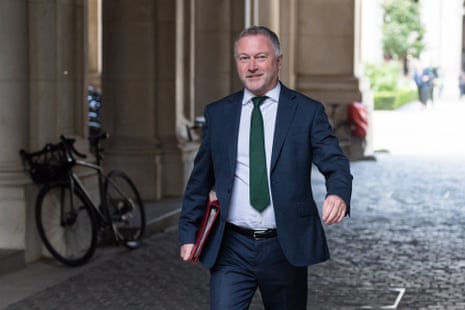
Vistry Group and Homes England form long-term venture
Shares in Vistry Group have risen by nearly 4% after the housebuilder, formerly known as Bovis Homes, formed a long-term joint venture with the government’s housing agency.
Homes England and the company have created a new vehicle, called Hestia, backed by a combined £150m of capital investment. It is part of the government’s pledge to build 1.5m homes in this parliament, over five years. Homes England said:
Hestia’s investment strategy will focus on identifying sites to bring forward vital new infrastructure and manage the construction of new communities of between 400 and 3,000 homes each.
This investment comes after the December 2024 announcement of a £700m extension to the Home Building Fund, and ahead of the launch of the £16bn National Housing Bank, which the government hopes will unlock a further £59bn of private sector investment in UK housing.
Matthew Pennycook, housing and planning minister, said:
Rapidly growing the pipeline of large mixed tenure sites across the country, making more use of Modern Methods of Construction, and backing SME housebuilders are all essential to achieving our Plan for Change target of building 1.5m homes in this Parliament.
By mobilising private capital alongside government investment, this significant new joint-venture will bring forward more high-quality, mixed-tenure developments and deliver thousands of new homes to buy and rent.
Share your experience: We would like to hear from people about how their commute has been affected by the tube strike.
Have you been able to find an alternative route to work?
Spurs say they have rejected two takeover approaches and club ‘not for sale’
Tottenham Hotspur has insisted that it is not of sale, after its majority shareholder Enic turned down two takeover approaches, including from dealmaker and former Newcastle United shareholder Amanda Staveley.
The Tottenham board says it has “unequivocally rejected” two expressions of interest in acquiring the club and that the Premier League club is “not for sale”.
Daniel Levy stepped down from his role as Spurs chair last Thursday, after being invited to leave the position he had held since 2001 by its owner, Enic, which is owned by the Lewis family trust. Family members of the billionaire Joe Lewis own more than 70% of Enic through a trust, with the rest held by trusts on behalf of Levy and his family.
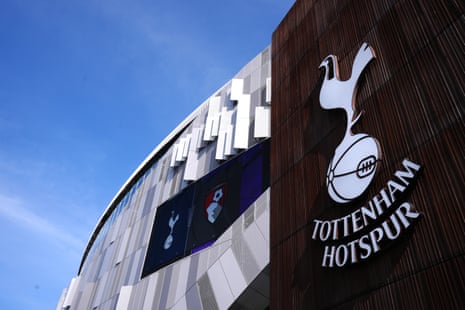
Spurs said one of the approaches had been from PCP International Finance, the investment vehicle led by Staveley, and on Monday PCP confirmed it had been interested in a potential move but said “it does not intend to make an offer for Tottenham”.
The Spurs board said in a statement that it had
received, and unequivocally rejected, separate preliminary expressions of interest in relation to proposals to acquire the entire issued, and to be issued, share capital of Enic from (i) PCP International Finance … and (ii) a consortium of investors led by Dr Roger Kennedy and Wing-Fai Ng through Firehawk Holdings Limited.
Staveley has sold her minority stake in rival English Premier League club Newcastle United, which is controlled by Saudi Arabia’s sovereign wealth fund.
Here’s our full story on the tube strikes and TfL website issues.
The ride hailing app Uber warned users of higher fares because of increased demand. Rides were quoted at multiples of normal levels, with some journeys costing about £50 for a five-mile trip in the capital.
Labour must improve workers’ rights to fulfil promise to voters, says Unite’s Sharon Graham
Sharon Graham, general secretary of the Unite union, has urged the government not to water down the employment rights bill, saying it had “made a promise to the British people,” while serial entrepreneur Luke Johnson warned that the bill will increase the burden on employers.
In a heated clash on BBC radio 4’s Today programme, Graham said:
What I hope is not going on is that the government are looking to water down the Employment Rights bill. They made a promise to the British people. This was a central part of what they promised that they would make work pay. And already, prior to this [government] reshuffle, we were already seeing fire and rehire watered down; a zero hour contracts ban, watered down; councils being allowed to fire and rehire added and so therefore the mood music wasn’t looking too good. And what I do hope is that they don’t intend on now slowing this down, or indeed, scrapping some parts of it altogether.
Her comments came as the Trades Union Congress (TUC), of which Unite is a member, is holding its annual congress in Brighton, which started on Sunday and lasts until Wednesday.
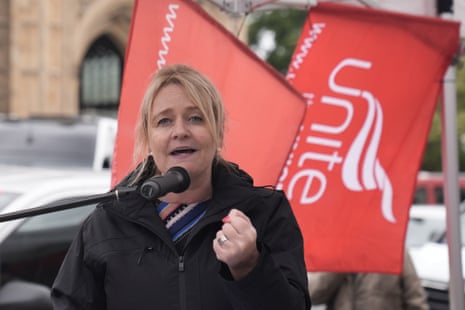
Johnson, the former chairman of Pizza Express, Channel 4 and the bust cafe chain Patisserie Valerie, who now sits on the board of Brompton Cycles, said:
Labour’s paymasters, the unions, want to see more rights, and the fact is.. unemployment is rising. Business sentiment is very weak, and every single major business or employer organisation opposes this bill. It is going to place much higher burdens on employers of day one rights, for example.
He was referring to giving workers full rights from the first day of employment, rather than putting people on probation for the first two years. This is about to change under the legislation.
That means it’s much more dangerous to take someone on. And I am quite sure, having talked to lots of employers and people thinking of starting a business, that all this extra red tape will just discourage people from investing, from taking on new workers and from creating jobs.
Turning to Graham, Johnson said:
Sharon is so ignorant about the reality of business. She’s never run, she’s never created a job. She doesn’t understand how hard it is actually out there. We’re on the cusp of a recession. The idea that all these extra costs and bureaucracy should be layered on employers is nuts.
Graham responded:
We have done a very detailed survey of 17,000 companies. I’ll send it to you, if you like, across Britain, that shows since before the pandemic, profit margins have gone up, on average, by 30%.
Buses, Elizabeth line take the strain as tube network shut

Gwyn Topham
Buses and the Elizabeth Line were taking the strain with queues to board other modes of transport around London, as strikes by Tube train and station staff left virtually the entire Underground network suspended, our transport correspondent Gwyn Topham reports.
Monday morning marked the first of four days of expected total Tube shutdown closure through the strikes, which started in places on Friday with minimal disruption.
Very limited Tube services on the outer, above ground stretches of the Central and Metropolitan line started running later in the morning.
The London Overground and most national rail services also continued to operate, although some major rail interchanges such as Farringdon were closed due to the RMT action.
TfL’s online journey planner and its TfL Go app appeared to be struggling under the weight of searches, failing to load, returning error messages or no results on early Monday morning.
The worst impact for congestion and transport is expected on Tuesday, with more Londoners still typically working from home on Mondays and Fridays.
Docklands Light Railway trains will also not run on Tuesday or Thursday because of strikes arising in a separate dispute.
AroundAbout 10,000 member of the RMT are taking industrial action in the Tube row, as the union attempts to secure a shorter working week as part of pay negotiations.
TfL has made a pay offer of 3.4%, which it urged the union to put to its members in a fresh ballot. It has said it cannot not meet demands to cut hours below the current 36 per week.
An RMT spokesperson said:
We are not going on strike to disrupt small businesses or the public.
This strike is going ahead because of the intransigent approach of TfL management and their refusal to even consider a small reduction in the working week in order to help reduce fatigue and the ill-health effects of long-term shift work on our members.
Nick Dent, London Underground’s director of customer operations, said the demands were “simply unaffordable” and called on the union to end its action, warning:
It will be very damaging for us.
Support for the union came from the 4 Day Week Foundation. Joe Ryle, campaign director, said:
It’s a bold and necessary stand, and these workers deserve widespread support. The five-day week is a century-old model that no longer reflects how we live and work today.
Commuter misery: Tube strikes and website issues
Commuter misery deepened this morning as the Transport for London website crashed, on the first day of a week of tube strikes.
People clicking on specific lines to find out more about the impact of a five-day strike by the RMT union were greeted with an “internal service error” message earlier this morning.
This appears to be fixed now, but the journey planner section on the TfL website is still not working.
The series of strikes will mean almost no tube trains running until Friday, with other transport in the capital likely to be affected by crowding and congestion.
The RMT union has batted back pleas to call off the industrial action, involving about 10,000 workers, as it attempts to secure a shorter working week as part of pay negotiations.
London’s other rail services – the Elizabeth line, London Overground and National Rail services – will continue to run, as will buses. Some central rail stations with tube interchanges will be closed.
Shelly Asquith, health & safety policy officer at Trades Union Congress, said on X:
A very good morning to all London Underground workers on strike today
Fatigue from long hours and extremely early or late shift work takes a major toll on the body, increasing likelihood physical and mental health conditions
You deserve better! #tubestrike @TfL @RMTunion
Economist Ben Ramanauskas, a former government adviser, said:
The @RMTunion shouldn't be able to hold Londoners to ransom and stifle the UK's economic growth. As much of TFL as possible needs to be automated ASAP. In the meantime the Tube should be declared an essential service and its workers banned from striking.
— Ben Ramanauskas (@BenRamanauskas) September 8, 2025New business secretary Peter Kyle going to China for trade talks this week
The UK’s new business secretary, Peter Kyle, will fly to Beijing this week as part of Keir Starmer’s continuing efforts to revitalise the UK’s trade relationship with China and provide growth to the British economy.
The former science and technology secretary, who was promoted in Friday’s government reshuffle, is expected to land in China on Wednesday, picking up the schedule of his predecessor, Jonathan Reynolds, who is now the chief whip.
Kyle was due to fly to Washington on Sunday evening as part of the preparations for Donald Trump’s state visit to the UK and then meet in Beijing with the Chinese minister of commerce, Wang Wentao, at the first gathering of the UK China joint economic and trade commission (Jetco) for seven years.
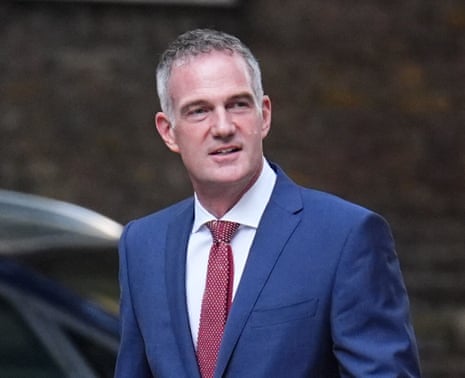
Introduction: US tariff tensions hit Chinese export growth, slowest in six months; oil prices climb
Good morning, and welcome to our rolling coverage of business, the financial markets and the world economy.
China’s export growth slowed to the lowest in six months in August, as Beijing shipped less to the US amid tariff tensions.
Exports from China rose by 4.4% year-on-year, according to official figures, less than economists had expected, and down from July’s better-than-expected 7.2% increase. Imports grew by 1.3%, down from a 4.1% rise in July.
Beijing’s shipments to the US fell by 33% while exports to southeast Asian nations rose by 22.5%. Policymakers want manufacturers to shift to other markets in light of Donald Trump’s erratic trade policy.
The US president delayed sweeping tariffs on China in mid-August, announcing another 90-day pause just hours before the last agreement between the the world’s two largest economies was due to expire.
Trump had threatened tariffs on China as high as 245%, with China threatening retaliatory tariffs of 125%. However, Chinese imports are subject to a a baseline tariff of 10% and a 20% extra levy in response to fentanyl smuggling allegations against China. Some products are taxed at higher rates.
China’s trade surplus rose to $102.3bn in August from $98.2bn in July, but below June’s $114.8bn. Analysts are waiting to see whether officials will rollout extra fiscal support measures in the fourth quarter to revive domestic demand.
Separately, Germany’s exports fell unexpectedly in July while industrial production rose.
Shipments from Europe’s biggest economy dropped by 0.6% from the previous month, against economists’ forecasts of a 0.1% gain. Imports were also down, by 0.1%. The country’s foreign trade surplus reduced to €14.7bn from €15.4bn in June, and compared with €17.7bn in July 2024.
On a brighter note, German industrial production rose by 1.3% in July.
Oil prices climbed, recouping some of last week’s losses, after the oil cartel Opec and allies such as Russia, known as Opec+, agreed over the weekend to raise output at a slower pace from October on expectations of weaker global demand. The possibility of more sanctions on Russia, a major oil exporter, also rose after Moscow’s overnight strike on Ukraine.
Brent crude rose by 1.5% to $66.45 a barrel.
On Sunday, eight members of OPEC+ agreed to lift production from October by 137,000 barrels per day, far below the monthly increases of 555,000 bpd in September and August, and 411,000 bpd in July and June.
The Agenda
-
TUC Congress in Brighton
-
4pm BST: US Consumer inflation expectations for August

 2 months ago
80
2 months ago
80






